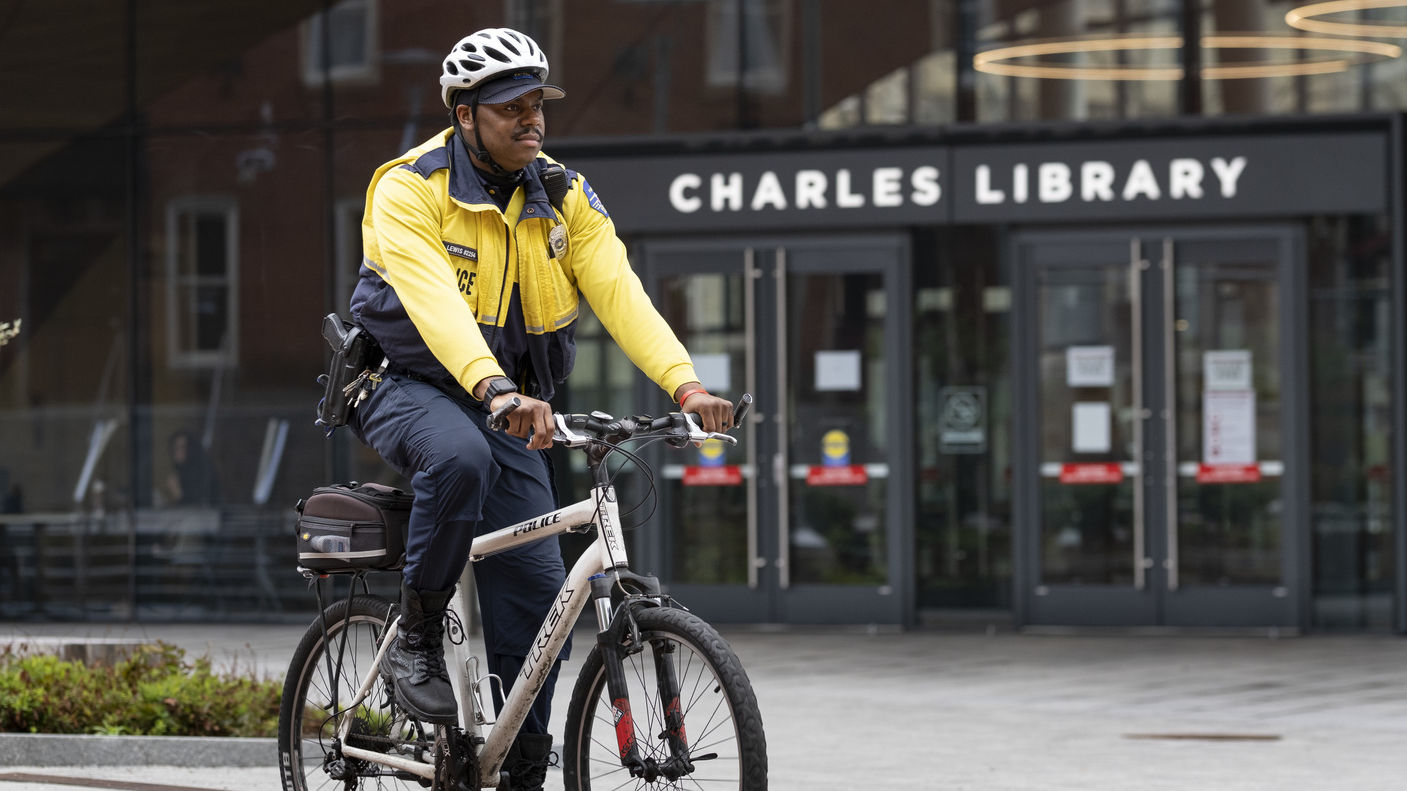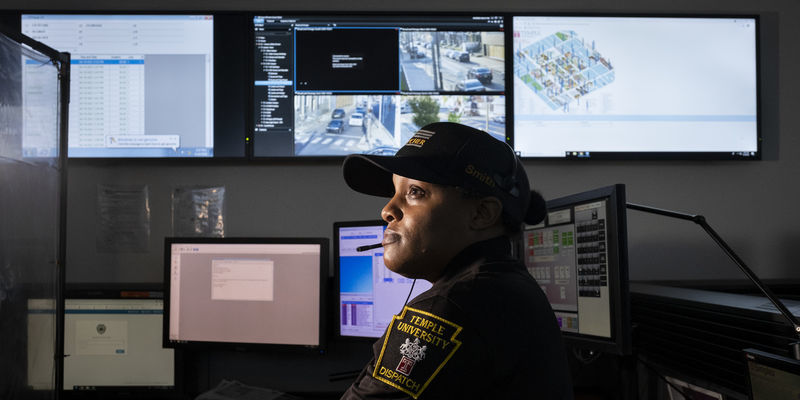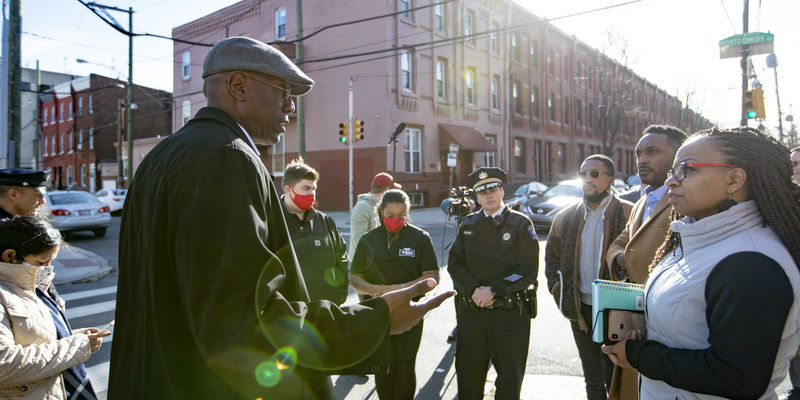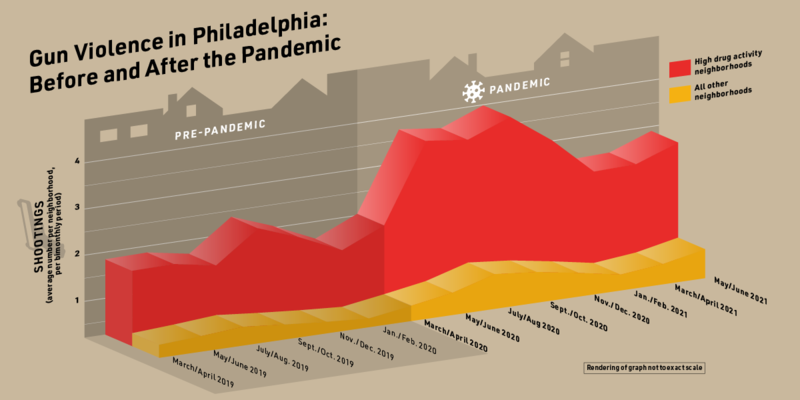Temple Student Government releases results from Campus Safety Survey
Findings from student survey will be shared with Campus Safety Services and university leadership to inform enhancements moving forward

Temple Student Government (TSG) today announced the results of its Campus Safety Survey, which was administered to the Temple University student community from Jan. 24 to Feb. 6, 2022. The survey found that the majority of residential students feel safe at Temple (81% of respondents living in university-owned residence halls reported feeling safe in their area of residence), and it also revealed several other key insights, which will be used to inform Campus Safety Services moving forward.
“From what we know, this is the first campus safety survey that has been driven by students, and it’s been in the works for some time,” said Jacob Golden, chief external services officer for TSG. “We’re here to represent the student body and be the voice of the student body, and that’s why we did this survey. We wanted to have an informed idea of what the student body wants.”
Together, TSG partnered with Campus Safety Services to complete the survey, which was facilitated by Institutional Research and Assessment. The survey was administered to 31,734 undergraduate, graduate and professional students on all domestic campuses. A total of 5,313 students submitted usable responses for an overall response rate of 16.7%.
“In recent weeks, we have announced several new initiatives related to campus safety, and this is another component of that,” said Charlie Leone, executive director for public safety at Temple University. “This survey, the recent partnership with former Philadelphia Police Commissioner Charles Ramsey, the launch of the RAVE Temple Guardian app and the creation of the Task Force on Violence Reduction are all going to play a part in keeping the Temple and North Philadelphia communities safe.”
Some of the other key findings from TSG’s recent survey include the following.
- Ninety percent of respondents agreed or strongly agreed that they pay attention to TUalerts and 87% agreed or strongly agreed that they are useful. A slight majority (54%) of respondents indicated that TUalerts cover enough events.
- Sixty-nine percent of respondents agreed or strongly agreed that Temple is attentive to campus safety issues.
- Students feel the safest walking on campus during the day and the least safe walking on campus on weekend evenings. On a scale of 1 (not safe) to 5 (very safe), average ratings were as follows: daytime weekday 4.07, daytime weekend 3.73, nighttime weekday 2.41, nighttime weekend 2.18.
- Only 28% of respondents have interacted with Campus Safety during their time at Temple.
- Safety concerns increase the farther students get from the center of campus and campus buildings. Of respondents living in private housing on or near campus, 56% reported feeling safe in their area of primary residence.
The survey also found that students are aware of the various campus safety services available at Temple, like the FLIGHT shuttle service, the walking escort service and the Code Blue Emergency Phone system. However, while respondents indicated they are aware of services, they noted that they do not use them. FLIGHT was the most-used service, with 37% of the respondents who indicated they are aware of the service indicating that they have used it.
“I was surprised to see how many students knew about the services offered but were not using them,” said Cory Staples, director of campus safety for TSG. “Now that we have this data, we can say, ‘OK, what is affecting students’ usage of these campus safety resources? What can we do to improve them so that we see more students taking advantage of them?’”
The survey results will be a valuable tool for the university moving forward. According to Golden and Staples, one of the other key takeaways from the survey is how it shows that all stakeholders must be a part of the discussion when it comes to ensuring safety in and around campus.
“We see that students feel less safe as they get farther away from campus in the areas where a lot of private housing is, and this is something that Temple does not have any control over,” Golden said. “Off-campus landlords can do things like install more lighting, make sure that locks work and make sure that every single unit in their building has a different lock. They need to do their part to make sure that the apartments they offer are safe, so that is why they need to be a part of this discussion moving forward, too.”


